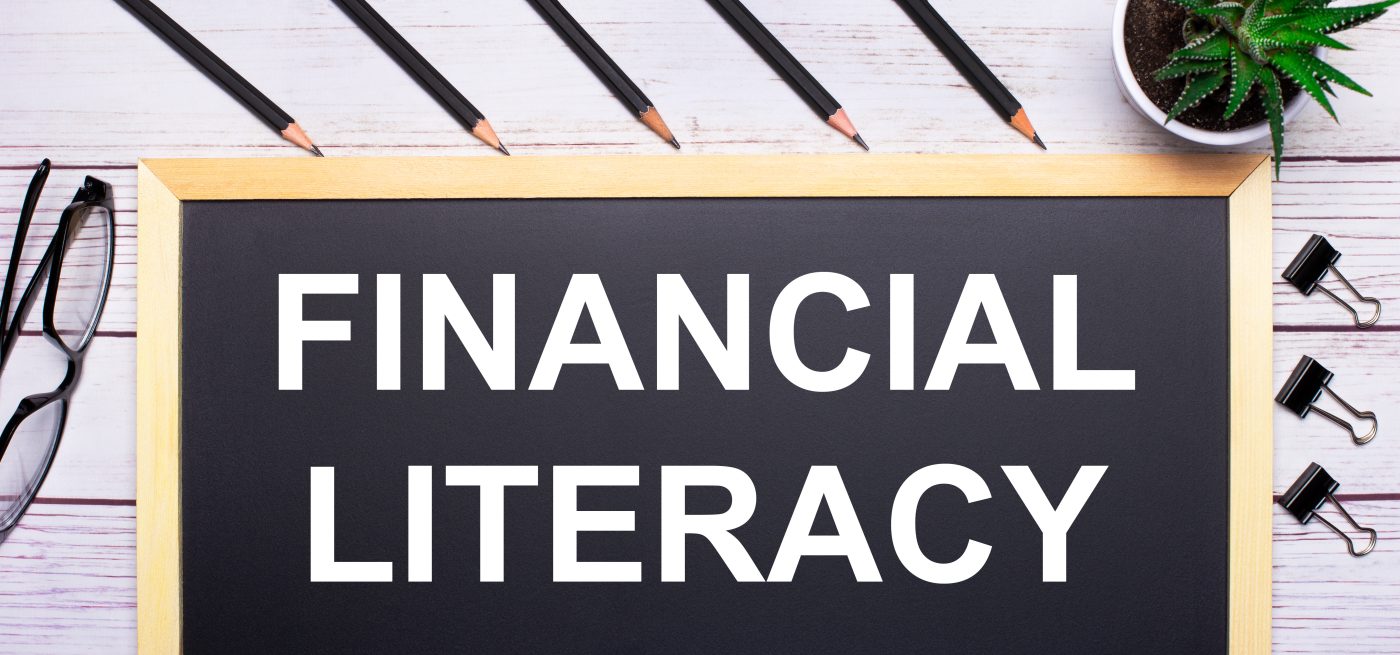The modern economy requires consumers to make increasingly harder and more frequent financial decisions. Suppose you were to look for reasons why financial literacy is important. In that case, you only need to ask fellow students, coworkers, and relatives simple questions about personal finance, like the ideal number of credit cards to have and how to select them, or if taking out student loans is a wise decision or the many complexities and strategies regarding retirement.
A basic understanding of economics and finance can help you to pursue your financial goals and plan for retirement. Research has shown that financial illiteracy cost Americans over $352 billion in 2021 alone. Financial ignorance isn’t cheap, but that doesn’t mean you can’t be an outlier.
What is Financial Literacy?
While the exact parameters for financial illiteracy can be a bit too slippery to pin down, Investopedia explains financial illiteracy by defining financial literacy. They consider someone unable to pay down debt over time, pay their bills on time, or keep a steady bank account as financially illiterate. A statistic from the Financial Industry Regulatory Authority, or FINRA, declares that 63% of Americans are not financially literate. Nearly two-thirds of Americans cannot manage the basic day-to-day financial operations necessary for everyday life.
Why are People Financially Illiterate?
It is no secret that many people don’t know how to manage their money. If you wanted to list some reasons for becoming financially literate, you only need to look at the general lack of knowledge most Americans have regarding personal finance.
To examine why people are financially illiterate, it is critical to understand how most people view money. Though you might believe that individuals with huge houses and fancy cars are wealthy, that does not necessarily ring true. Most millionaires manage their money wisely, choosing not to flaunt their wealth in ways they deem frivolous and will likely depreciate quickly. There is a quote that says, “Money talks, but wealth whispers.”
Just because someone earns a high income doesn’t mean they’re financially literate. We’ve all heard stories of professional athletes who make millions of dollars but end up filing for bankruptcy later on.
Ultimately, financial illiteracy comes down to a lack of financial literacy being taught, both in schools and at home. Financial literacy is considered a tough subject to teach in school, as many teachers themselves don’t feel qualified. Testing for it would be hard to standardize, as the validity of its methods and strategies can be subjective. While many financially illiterate people don’t consult a financial planner, consider meeting with an affordable financial advisor in Newark to help you better understand how to save for retirement and your long-term and short-term financial goals.
Becoming Financially Literate
The benefits of financial literacy can grant you the knowledge and confidence to save, manage, and invest your money wisely and efficiently. This can range from improving your credit score, budgeting, and financial planning toward your goals, from retirement to investing daily.
Making sound financial decisions is becoming increasingly more important. For example, many workers once relied on pension plans for their retirement. However, very few workers today are offered pension plans, with many companies offering 401(k) plans instead. A 401(k) plan requires workers to make their own choices about their contributions and investment allocation, which raises the importance of financial literacy.
Since people are living longer, they need income in addition to Social Security to cover their longer retirements. Financial literacy is a must for making informed decisions that will significantly impact your life.

Do you Suffer From Financial Inertia?
Financial inertia is a problematic condition that often leads to impactful consequences. Financial inertia occurs when people procrastinate financial and retirement planning, despite knowing they need to go over it. Financial inertia is often due to fear and anxiety over making a mistake or confusion about how to begin, often due to a lack of financial education. These initial problems continue to snowball with time, and their negative consequences are exacerbated.
The longer you are not putting your money to work for you, the harder it will be to start and the less impactful it will be. Compound interest, just one example of many, can be significantly more impactful the sooner you start.
It is of the utmost importance to conquer financial inertia early on and take the necessary steps to secure your financial goals.
How Subscription-Based Financial Planning can Help
As affordable financial advisors in San Ramon, we strive to provide our clients with the most flexible financial planning options. Our subscription model financial advice is available to all clients at an affordable monthly fee. Our financial plans are for both individuals and families and can help you tackle the most complex financial situations.
Our subscription-based plans can help you budget, develop a personal investment plan for your 401(k), and even set up college funds for your children. To combat growing financial illiteracy, our monthly subscriptions help our clients further their financial education, providing them with the necessary tools to work toward their financial goals.



